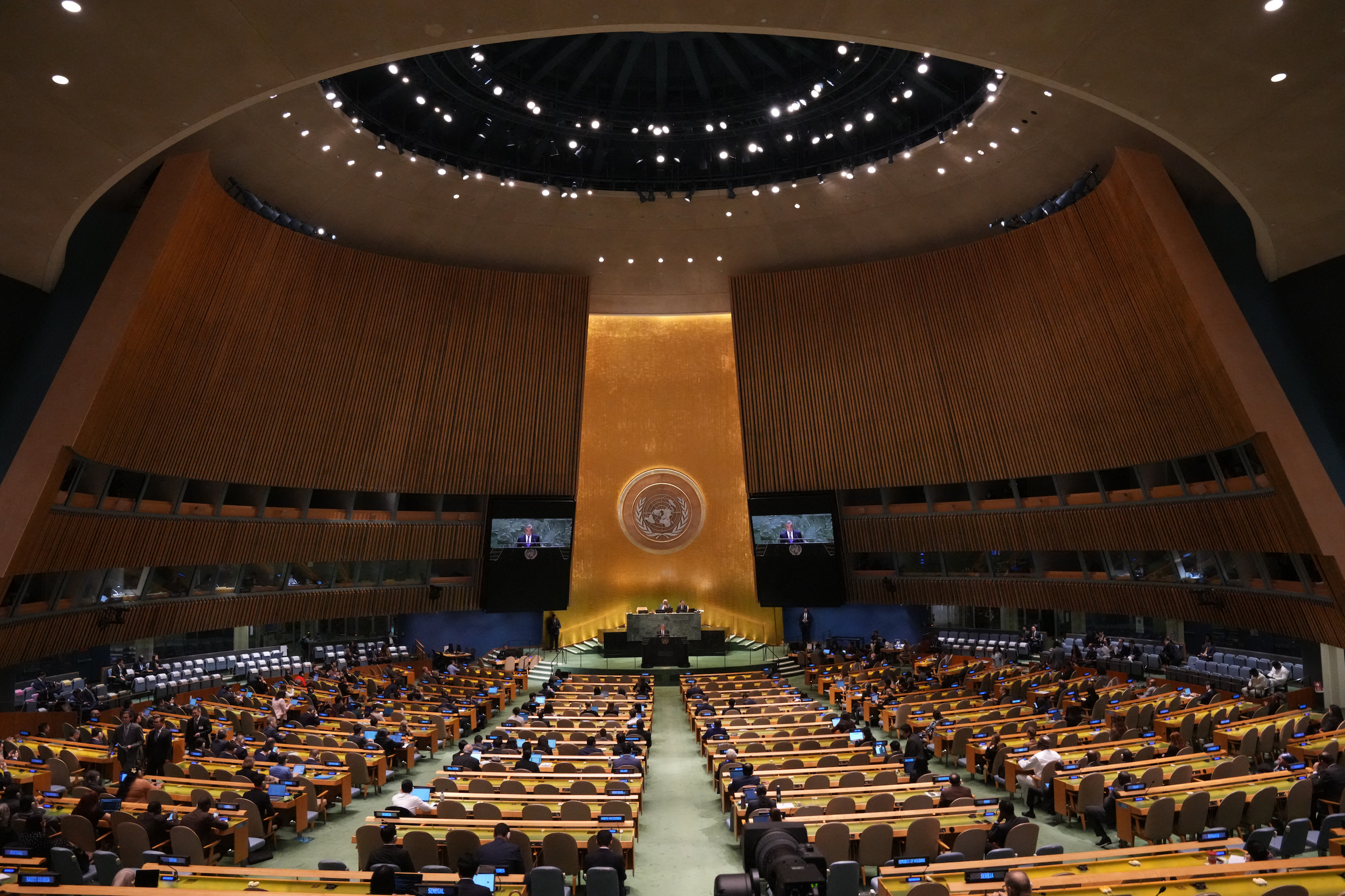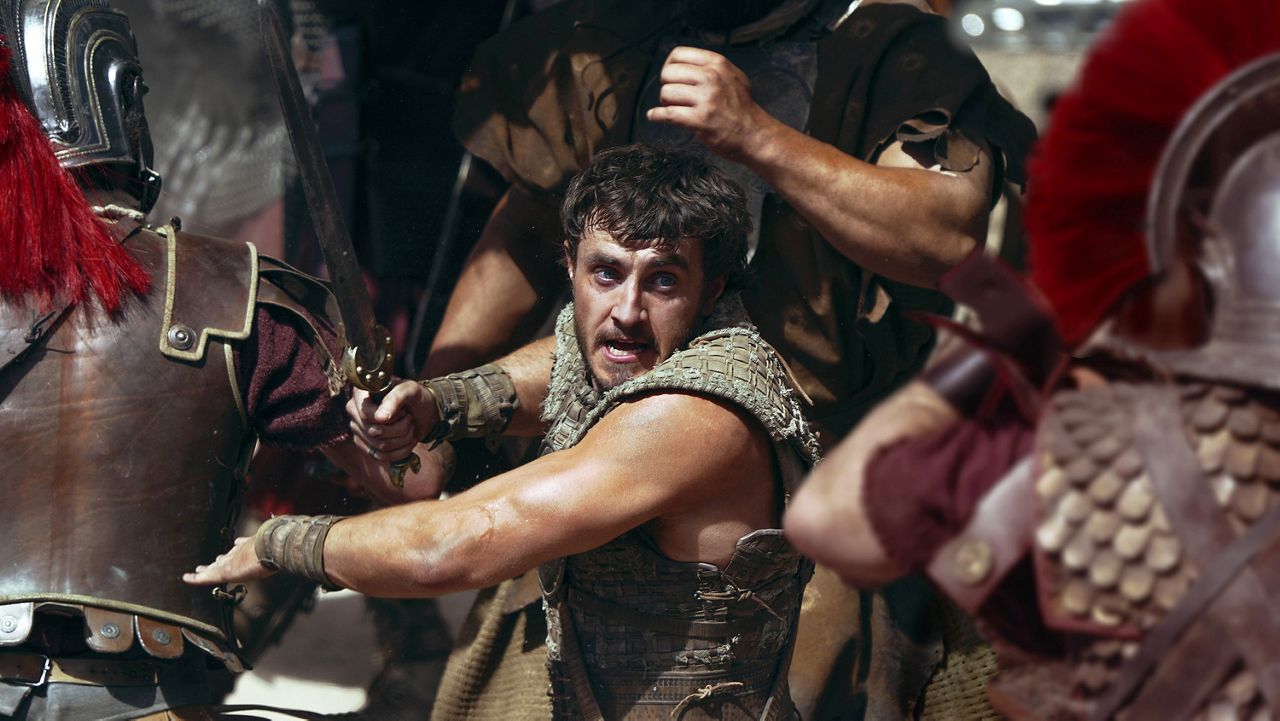Sports
Now’s The Time To Defend Women’s Sports Around the World | Opinion

We are at a critical juncture for women and girls in sports both in the United States and around the world. The U.S. Supreme Court currently has before it two petitions asking it to hear key cases on the matter of protecting female athletes from having to compete against males. The Court has the opportunity to take these cases, brought by West Virginia and Idaho and three female athletes represented by Alliance Defending Freedom, and set the record straight—female sports belong to female athletes.
At the international level, there’s been an evident tide shift following the Paris Olympics. It’s becoming increasingly impossible to ignore the consequences for female athletes when males are allowed into their sports and related spaces. We can’t pretend we don’t see the grim picture—when we ignore biological reality, it is women and girls who suffer most.
I went to United Nations Headquarters earlier this month to deliver this message on behalf of female athletes everywhere. Speaking at an event taking place as part of the ongoing UN General Assembly convened by ADF International and alongside the governments of Paraguay, Cameroon, Morocco, and Malaysia, my mission at the UN was clear: to ask the international community to respect the human rights of women and girls in sport across the globe. Olympic swimmer Sharron Davies and U.S. collegiate athlete Lainey Armistead lent their powerful testimonies, and we were joined by the UN special rapporteur on violence against women and girls, Reem Alsalem.
What I saw at the UN confirmed that the global conversation is shifting to recognize that every female athlete has the right to compete on a playing field that is both fair and safe, and that means one that is exclusively reserved for females.
In the words of the UN special rapporteur, the leading voice at the UN on the protection of women and girls from violence: “the failure to protect the female category is one of the most egregious forms of violence that is currently being perpetrated against women and girls in sport as the essence of being ‘female’ is willfully pushed aside and ignored resulting in distress, pain, humiliation, discrimination, frustration, anger at the loss of dignity and safety, and the sheer injustice that is confronted.”
It seems every day now we hear the same story—a biological male intrudes into a female-only team with devastating consequences for hardworking female athletes. But we are also hearing the courageous voices of these athletes, and thanks to them, we are turning the corner to uphold the rights of women and girls.
Key here is the fact that in the U.S., female athletes were under the impression that we already had turned that corner. Since the signing of Title IX in 1972, our laws and policies have been designed to ensure that women and girls have the same access as men to play sports. Title IX removed many of the obstacles that unfairly barred women and girls from sports, or heavily disadvantaged them, allowing female athletes a real shot at achieving their dreams for the first time.
Bryan R. Smith/AFP/Getty Images
The story of female sports advocate Lainey Armistead, who along with two former college athletes, is asking the U.S. Supreme Court to protect the future of the sports they love makes clear what women and girls stand to lose when males are allowed to hijack what rightfully belongs to them.
Thanks to her and her family’s dedication to excellence in soccer, Lainey was offered a scholarship to attend college. This scholarship, as Lainey has explained, “helps pay for my education and brings me one step closer to my dream of being a lawyer someday.” Her athletic scholarship allowed her to avoid being saddled with student loans and opened countless doors. Lainey’s story shows the tremendous value of athletics for women and girls, and she is appealing to the Supreme Court on behalf of all the young girls coming behind her with the same dreams.
Women and girls should never be sidelined in their own sports. The creation of female-only athletic categories is about recognizing objective biological differences. The science demonstrates, with no room for doubt, that males are always going to have an insurmountable performance advantage over females. Males generally have greater muscle mass and bone density, in addition to wider shoulders and longer limbs. They have approximately 30 to 40 percent higher oxygen intake capacity, translating to a 10 to 15 percent endurance advantage. In running events, males consistently outperform women by around 10 to 12 percent. Does that make women worth any less than men? Not at all. But these evident differences demand categories separated by sex.
Allowing males into women’s sports not only undermines fairness—it also places female athletes in serious physical danger. Wherever a male is allowed to enter a female-only space, a woman’s right to safety is jeopardized, especially in sports that involve physical contact. The risks extend beyond the playing field. Women and girls’ rights to privacy and safety are flouted every time a member of the opposite sex is allowed inside their intimate spaces like showers or locker rooms.
As I said at the UN, female athletes “need to know that the protection of their rights is non-negotiable. We should never give a young girl lessons in losing, teaching her that her effort—all those years of early wakeups, long practices, sweat, and even tears—is completely disconnected from the result. Every girl deserves to know that while she may not always win, she has a fair shot alongside of the rest of the deserving female peers.”
We’ve learned the hard way that if female sports aren’t protected, it does grave harm to women and girls. In the U.S., 25 out of 50 states have enacted laws protecting female sports from male intrusion. Other countries should heed the lessons learned by the unfortunate trajectory of female sports in this country, safeguarding female sports now so that every girl has the chance to pursue her dreams in sport.
Kristen Waggoner is CEO, president, and general counsel at Alliance Defending Freedom.
The views expressed in this article are the writer’s own.





.jpg)


